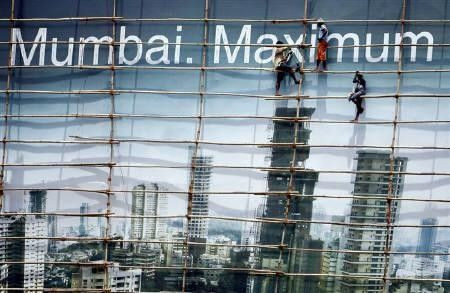India Inc Faces Slowdown: Investor Sentiment Dampened

India Inc has lost its swagger. Slowing growth, stubbornly high inflation, rising interest rates, political gridlock, gloom in the West and a sliding rupee have conspired to dampen investor and corporate sentiment in Asia's third-largest economy.
Share prices are down 20 percent for the year, bad loans are on the rise, and companies are delaying big investments that would add much-needed industrial and infrastructure capacity.
Leaders of some of India's largest companies will discuss the outlook for getting the economy back on track and restoring business confidence at the sixth Reuters India Investment Summit from Nov. 21 to Nov. 23 in a series of exclusive interviews.
This slowdown is certainly more than a temporary blip, given that there are very serious concerns on the domestic front, notwithstanding global problems, said Bidisha Ganguly, chief economist at the Confederation of Indian Industry. The biggest worry is certainly the slowing of investment and capital expenditure by the major corporate, he added.
India is still likely to grow at around 7.6 percent in the current fiscal year compared with 8.5 percent a year earlier, according to a Reuters poll, and its young aspirational and growing population of 1.2 billion give investors and companies optimism for the long term.
This week, Macquarie downgraded its India's growth forecast for the year to March 2013 by 1 percentage point to 6.9 percent due partly to a lack of policy reforms. Thirteen interest rate hikes since March 2010 have failed to curb inflation that remains near double digits but has stunted demand and deterred investments.
Industrial output growth slowed to just 1.9 percent in September and consumer confidence is waning, with car sales in October dropping 24 percent from a year earlier, their worst such skid in more than a decade.
Executives from infrastructure firms, which are crucial to creating capacity that enables economic growth, blamed a lack of action from a government distracted by corruption scandals as a key reason for the cloudy business outlook during a recent World Economic Forum event in Mumbai.
Risk-averse foreign portfolio investors are shying away, while bureaucratic delays on projects such as POSCO's $11 billion steel mill make both foreign and domestic companies reluctant to invest.
We believe reforms to create a robust framework with transparent policies for project execution and funding will be critical to keep up the pace of infrastructure development in India, Standard & Poor's analyst Rajiv Vishwanathan said in a report this week.
In the three months to September 2011, net foreign institutional investments totalled 8.9 billion rupees ($177 million), according to India's market regulator. In the same period last year, the net inflow was 721 billion rupees.
Indian stocks are lagging a 17 percent fall in the MSCI Asia ex-Japan index, with slowing demand and tightening margins weighing on recent results for Indian firms. Moody's recently downgraded its outlook for Indian banks.
© Copyright Thomson Reuters {{Year}}. All rights reserved.





















